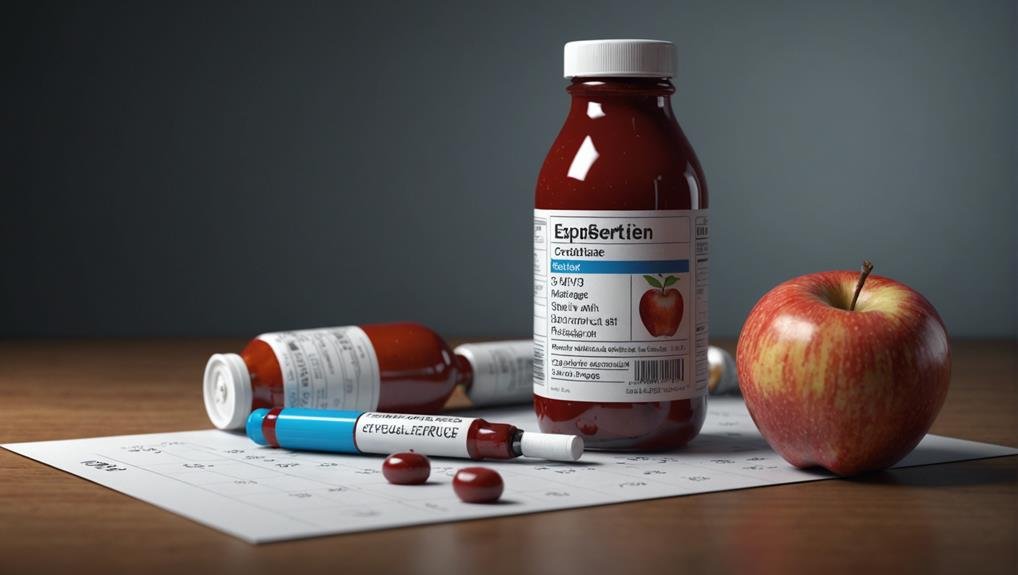What Does Expiration Date Mean for Food and Prescriptions Drugs?
Understanding expiration dates is essential for food and prescription drugs, as they guarantee quality, safety, and effectiveness. These dates play a crucial role in maintaining freshness, taste, and nutritional value in food products. For medications, adherence to expiration dates is crucial to avoid potential risks associated with changes in chemical composition and diminished effectiveness. The FDA strictly regulates expiration dates for medications to guarantee potency and safety. Proper storage and handling practices maximize shelf life and safety. To grasp the full importance and implications of expiration dates, explore further into the significance of date labels, risks of using expired medications, FDA regulations, and additional tips for consumers.
Key Takeaways
- Expiration dates indicate safety, quality, and potency of consumable products.
- Crucial for maintaining freshness, taste, and nutritional value of food items.
- Vital for ensuring effectiveness and safety of prescription medications.
- FDA strictly regulates expiration dates for medications to guarantee potency.
- Proper storage practices are essential for maximizing shelf life and safety of consumable products.
Importance of Expiration Dates
The importance of expiration dates cannot be overemphasized as they play a critical role in ensuring the quality, safety, and effectiveness of consumable products such as food and medicine. Expiration dates are fundamental in quality assurance processes as they indicate the period during which a product is expected to retain its best attributes.
For food products, these dates help in maintaining freshness, taste, and nutritional value, ensuring consumers receive goods at their peak quality. In the case of medicines, expiration dates are essential for product safety, as expired drugs may lose potency or even pose health risks due to chemical degradation. Understanding and adhering to expiration dates are necessary practices to guarantee the efficacy and integrity of consumable items.
Understanding Date Labels
Understanding the nuances of date labeling on consumable products is essential for consumers to make informed decisions about product quality and safety. Consumer confusion often arises due to the variety of date labels like sell by, use by, best by, or do not use after dates.
Label importance is vital for consumers to understand the intended meaning behind each date label. While federal law does not mandate date labeling on most food products, different date labels serve distinct purposes for store clerks, consumers, and product quality.
Ambiguity in expiration dates on food products can lead to uncertainty about their safety and quality. Clear and standardized date labeling practices can help alleviate consumer confusion and promote product safety.
Risks of Using Expired Medications
Using expired medications poses potential risks due to changes in their chemical composition that can be harmful to individuals' health. Drug effectiveness diminishes past the expiration date, leading to potential health risks if consumed.
Manufacturers do not guarantee the potency and safety of medications beyond the stated expiration date. The chemical breakdown of expired medications can result in altered properties that may be ineffective or even harmful to the body.
It is important to adhere to expiration dates on prescription and over-the-counter drugs to guarantee their efficacy and avoid any potential adverse effects on health. Proper disposal of expired medications is vital to prevent unintended consumption and associated risks.
FDA Regulations and Guidelines
A critical aspect of ensuring the safety and efficacy of medications, both prescription and over-the-counter, is adherence to the expiration dates mandated by the FDA.
When it comes to FDA regulations and guidelines regarding medication safety, the following points are vital for consumers to understand:
- FDA Mandates: The FDA strictly regulates expiration dates for prescription and over-the-counter medications to guarantee their potency and effectiveness.
- Safety and Effectiveness: Expiration dates are essential for maintaining the safety and effectiveness of medications, as expired drugs may pose health risks.
- Extension in Shortages: In situations of drug shortages, the FDA may extend expiration dates to ensure continued availability of essential medications.
Additional Tips for Consumers
For consumers seeking to maximize the shelf life and safety of their consumable products, implementing proper storage techniques is crucial. Proper handling and storage practices can greatly extend the shelf life of perishable foods and medications.
It is essential for consumers to be aware of the impact of storage conditions on product quality and safety. The USDA offers valuable resources on food safety and storage guidelines to assist consumers in maintaining the freshness and effectiveness of their products. Additionally, the FDA emphasizes the importance of not using medicines beyond their expiration dates and stresses the importance of storing medications properly to ensure their potency and safety.
Conclusion
To sum up, the importance of expiration dates for food and prescription drugs cannot be underestimated. These temporal indicators serve as vital safeguards for public health and product quality.
By understanding the nuances of date labels, recognizing the risks of using expired medications, and adhering to FDA regulations, consumers can make informed decisions to guarantee safety and efficacy.
Remember, anachronisms like 'time warp' can transport us to a world of heightened awareness and accountability in our consumption practices.







